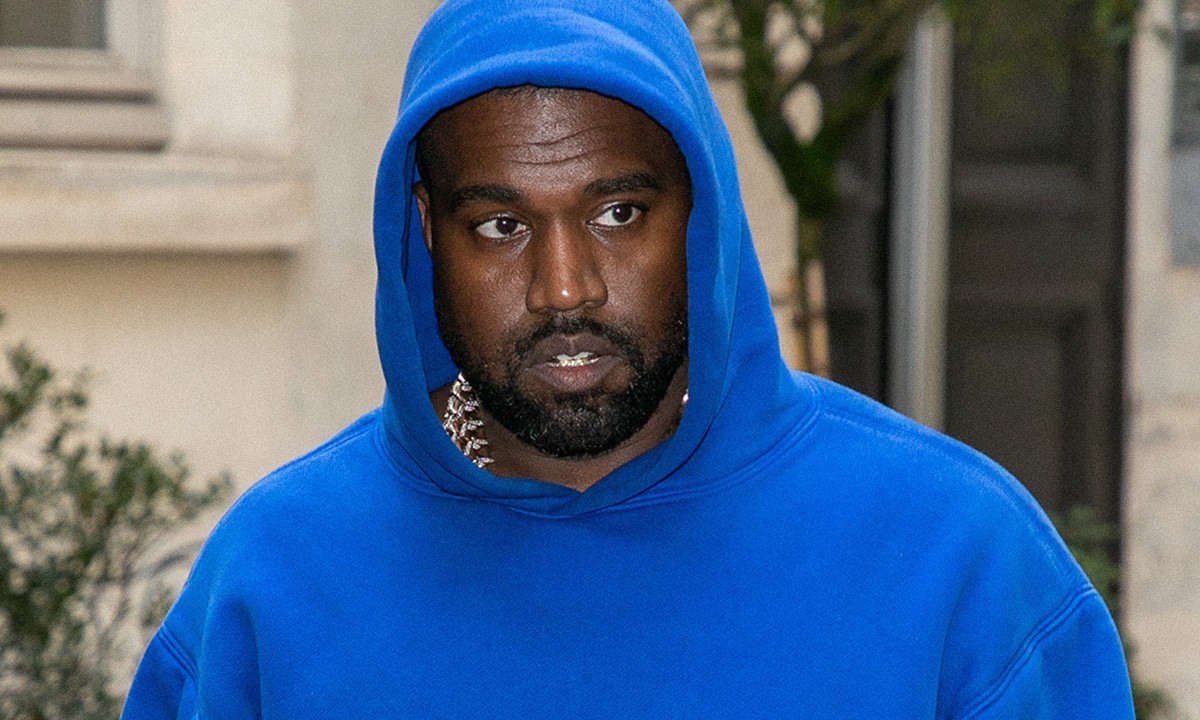Last night, Kanye West delivered his latest Twitter soliloquy in which he sent a very clear message to his music label: “I’m not putting no more music out till I’m done with my contract with Sony and Universal.”
During his tweet spree, Kanye referred to the music industry as a “modern day slave ship” and said that he refused to watch his “people be enslaved.” And while his slavery comparison might seem characteristically sensational, he’s definitely not the first person to call out the industry’s exploitation of Black artists, nor use the analogy of slavery in this context.
West was confined to a particularly nasty agreement with EMI that forbid him from ever retiring. While the two parties initially agreed to settle their legal battle last September, the case has since reopened and it’s clear that West is still dissatisfied. He shared screenshots of a conversation with his legal counsel outlining a “lawsuit/termination nuclear option” where he could litigate and ask for his master recordings (the original version from which everything else stems) as part of the settlement in a “high risk but high reward strategy.”
The above conversation references Taylor Swift’s 2019 lawsuit, which concerned a legal fight between her and Scooter Braun, who bought the rights to her first six albums when taking over Scott Borchetta’s Big Machine Label Group. Although she had been vocal about wanting to buy the rights to her own music, she reportedly wasn’t given the option.
At the time, she wrote in a blog post, “For years I asked, pleaded for a chance to own my work. Instead, I was given an opportunity to sign back up to Big Machine Records and ‘earn’ one album back at a time, one for every new one I turned in.” She concluded, “I walked away because I knew once I signed that contract, Scott Borchetta would sell the label, thereby selling me and my future. I had to make the excruciating choice to leave behind my past.”
Of course, the irony of Kanye’s counsel referencing Swift isn’t lost on us, but it does hammer home the point that this affects many of the most successful and culturally important artists.
When Prince announced that he would release his album HitNRun exclusively to Tidal, he explained why he intended to sidestep a record label and offer the LP directly through the streaming service. “Record contracts are just like slavery, I would tell any young artist … don’t sign.” He said that record labels trap artists into “indentured servitude,” where they have little control or insight over how labels take their music and profit off it online.
While details of Kanye’s case are yet to unfold, he’s making moves to fight back on a united front. On Twitter, he appealed to fellow musicians Drake, J. Cole, and JAY-Z, asking for an end to “dissing each other on labels we don’t own.” This appeal echoes sentiments shared by David Bryne in his 2015 New York Times Op-ed — “The whole music industry, all of it, can flourish. There is a rising tide of dissatisfaction, but we can work together.” — and while the fruits of these calls are yet to be seen, it would certainly be interesting to see how the inner cogs of the industry reacts if its top-grossing artists all went on strike.

